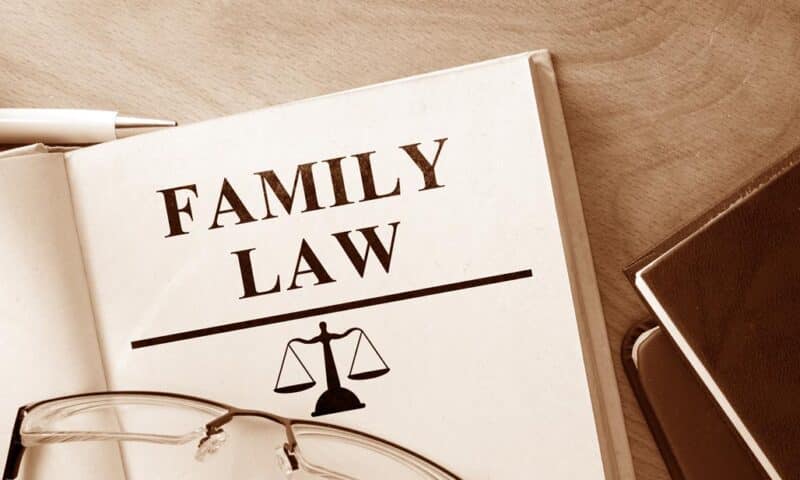Life changes after divorce. New jobs open up, a partner’s work moves, or family support is stronger in another city. If you share parenting time, a move isn’t just a personal decision—it intersects with court orders and your child’s day-to-day routine. Relocation cases are handled carefully because they can reshape school schedules, healthcare providers, and the time each parent spends with the child. That’s why planning ahead, communicating early, and understanding the legal landscape are so important.
Most courts use a “best interests of the child” standard. Exact rules vary by state, and you’ll see that when you compare searches like relocation custody Arizona with your own state’s requirements. Some places require written notice before a move of a certain distance; others require consent or a court order. The common thread: judges look at the reason for the move, the practicality of a revised parenting plan, and how the change affects your child’s relationships and stability.
- Reason for the move: Is it tied to work, family support, or cost of living?
- Distance and logistics: How far is the move and how realistic is long-distance parenting time?
- Child’s needs: School options, healthcare access, and extracurricular continuity.
- Co-parenting history: Communication, reliability, and ability to follow orders.
- Preserving relationships: A plan for frequent, meaningful contact with both parents.
- Impact on finances: Travel time, costs, and who can reasonably cover them.
If you’re considering relocating, you typically have the right to request a modification of your parenting plan and to present a detailed proposal. Courts appreciate specifics: where you’ll live, school information, a transportation schedule for parenting time, and ideas for sharing travel costs. Many states require formal notice within a set time frame before moving—missing that step can cause problems, even if your reasons are solid. Mediation is often encouraged to see if you and your co-parent can agree on a schedule that keeps the child’s routine steady.
If you’re the parent staying put, you generally have the right to object, ask for a hearing, and propose alternatives that preserve your relationship with your child. That can include longer school breaks, regular virtual time, and clear travel arrangements. You can also request orders that address transportation and cost allocation so plans are fair and workable. The goal is not to “win” against the other parent; it’s to make sure the child has frequent, consistent contact and a routine that feels safe and predictable.
There are real risks in moving without consent or a court’s approval when it’s required. Judges can order the child returned, modify custody, or impose other remedies. Even when everyone is acting in good faith, rushed moves can create confusion and stress for a child. Practical steps help: start the conversation early, put everything in writing, research schools and childcare, keep records of job offers and housing, and build a realistic calendar that shows how both parents will stay closely involved. When you need guidance or help shaping a workable plan, you can speak with Mary Katherine Boyte, P.C. to discuss your options and next steps. This is general information, not legal advice; laws and procedures depend on your state and your court orders.
When a Parent Wants to Move Out of State
Moving across state lines adds extra layers to a relocation request. It’s not only about distance; it’s about which court keeps authority over your case, how and when to give notice, and how to redesign parenting time so a child stays connected to both parents. If you already have a custody order, the original court often keeps control over changes until legal standards for transferring the case are met. Many states follow uniform rules that favor stability—so filing first and following proper notice procedures matters.
Most courts use a “best interests of the child” framework, but the exact steps differ by state. You may see searches like relocation custody Arizona when researching, which can be useful for background, yet your own state may have different timelines or paperwork. Out-of-state moves commonly require advance written notice, a proposed revised parenting plan, and either the other parent’s consent or a judge’s approval. Skipping those steps can delay a move or result in orders that are hard to unwind later.
Think about what a judge will want to see. Clear reasons help: a verified job offer, access to consistent childcare, or family support that improves day-to-day stability. Be ready to show specifics about the new community—housing, school options, and healthcare providers—and how you’ll keep the other parent closely involved. For many families, that means building a plan that shifts from frequent short visits to fewer but longer visits tied to school breaks, plus regular virtual contact during the week. If flights are involved, include pickup and drop-off details, who books tickets, how costs are shared, and alternatives when weather or illness interferes. If your child is young, check airline rules for unaccompanied minors ahead of time so the plan is realistic.
Jurisdiction is a quiet but important issue. Even after a move, enforcement and modifications typically remain with the original state’s court until certain conditions change. Parents sometimes register an existing order in the new state to make enforcement easier where the child will live, while still returning to the original court for any changes. That’s a procedural step, not a shortcut around the existing order.
If you are the parent considering the move, communicate early and put key information in writing. Share your timeline, why the move benefits the child, and a day-by-day schedule for long-distance parenting time. Keep messages respectful and focused on the child’s routine—school calendars, activities, and healthcare. Avoid moving first and asking later unless an emergency requires immediate action; in urgent situations, courts can consider temporary orders, but the bar for disrupting a child’s schedule is usually high.
If you are the parent staying put, you can object, ask for a hearing, and propose alternatives that protect frequent, meaningful time. Judges pay attention to practical solutions, not just opposition. Offering travel flexibility, proposing video calls at predictable times, and identifying local activities that keep the child’s friendships and schoolwork on track can be persuasive. Document your involvement—school events, medical appointments, extracurriculars—so the court sees what continuity looks like in real terms.
Mediation is often helpful before anyone files a formal objection. It creates space to solve logistics—flight times, holidays, birthdays, and make-up time—without turning every issue into a court fight. Even if you can’t resolve everything, narrowing points of disagreement can speed up the process in court and reduce stress for the child.
Every relocation is fact-specific. The distance, the child’s age, work schedules, and cost of travel all matter. When you need guidance, you can speak with Mary Katherine Boyte, P.C. about timelines, notice requirements, and options for a child-centered plan that fits your family. This is general information, not legal advice; your rights and procedures depend on your state and the orders in your case.
How the Court Weighs Best Interests & Distance
When a parent plans a move, judges return to one anchor: the child’s best interests. Distance is not automatically “good” or “bad.” It is a practical reality that can change routines, schooling, and how often a child sees each parent. Courts look for a plan that keeps the child stable and connected, while acknowledging that jobs, housing, and family support sometimes require living farther apart.
Reason for the move matters. A verified job offer, safer housing, lower living costs, or nearby relatives who can help with childcare can show potential benefits for the child’s day-to-day life. Judges then test those reasons against logistics: how the new plan will protect school attendance, healthcare access, and regular, meaningful time with the other parent. Specifics carry more weight than broad promises.
Distance becomes concrete in court. A 60–90 minute drive has different impacts than a flight with a layover. Judges consider mileage, drive times in real traffic, time zones, weather, flight availability, and the child’s age. A toddler may struggle with frequent long trips; a teenager might manage longer blocks of time that line up with school breaks and extracurriculars. The court also looks at fatigue, missed school days, and whether travel can be done without placing adult burdens on a child.
Courts study co-parenting history. Reliability at exchanges, responsiveness to messages, and steady follow-through on homework, medical appointments, and activities help a judge predict how a long-distance schedule will work. A parent who communicates clearly and honors orders tends to be viewed as better positioned to manage the added coordination that distance brings.
The child’s needs stay front and center. School continuity, special services, counseling, and medical providers are part of the analysis. Existing friendships and community ties matter, as do opportunities in the new location. Depending on the state and the child’s maturity, a child’s preferences may be considered, but they are weighed alongside all the other facts and never treated as the only factor.
Legal standards vary by state, which is why searches like relocation custody Arizona can look different from your state’s rules. Some places use mileage thresholds or county lines to trigger notice and court review; some place the initial burden on the moving parent; others take a neutral approach. Many cases also involve jurisdiction questions. Under widely adopted uniform rules, the original court typically keeps authority over enforcement and changes until certain conditions shift.
Judges want a plan that works in real life. Proposals that include travel timelines, who books tickets, how costs are shared, backup options when a flight is canceled, and consistent virtual time tend to be more persuasive. Families often transition from frequent short visits to fewer but longer blocks during summer and school breaks, with scheduled video calls during the week. Shared online calendars, school portals, and co-parenting apps help both sides stay involved in assignments, grades, and activities.
Two common scenarios illustrate the analysis. A 75-mile move might replace midweek overnights with alternating weekends and regular midweek video calls, aiming to protect sleep, school attendance, and sports. A 700-mile move may require flights, longer summer and holiday time, and clear rules on booking, escorts for younger kids, and who handles missed connections. In both settings, the judge asks whether the child will still have frequent, meaningful contact and a routine that feels predictable.
If a move is on the horizon, start early. Give written notice as required, share documents like job offers and school calendars, and explore mediation to narrow disagreements before a hearing. For help crafting or responding to a proposal, you can speak with Mary Katherine Boyte, P.C. about timelines, notice requirements, and options that keep the child’s needs at the center. This is general information, not legal advice; laws and procedures vary by state and court.
Modifying Parenting Time & Decision-Making
Parenting plans are living documents. Jobs shift, kids grow, households change. When the plan no longer fits, parents often ask how to modify parenting time (the schedule) and decision‑making (who makes major choices). These are separate issues. A court can adjust the calendar without changing who decides on school or medical care, and vice versa. The shared goal stays the same: steady routines and meaningful time with both parents. Thoughtful planning and clear communication go a long way before anyone files a motion.
Most states require a material change in circumstances and that any change serve the child’s best interests. The details vary, which is why searches like relocation custody Arizona can look different from your state’s timelines and notice rules. Some courts place the initial burden on the parent requesting the change; others take a neutral approach. Either way, judges look for specifics: what has changed, why the current plan no longer works, and how the proposed plan protects school, health care, and consistent contact.
Typical triggers include a new work schedule, a school switch, increased activities, or a move that alters drive times. For example, a rotating shift might turn midweek overnights into midweek dinners with alternating weekends during the school year, with added time in summer to balance hours. If travel distance expands, a plan might shift to fewer exchanges and longer blocks tied to school breaks, plus predictable phone or video calls. Concrete calendars, pickup times, and transportation details help show the plan works outside of ideal conditions.
Decision‑making can also be revisited. Some orders provide joint decision‑making for education, medical, and extracurriculars, while others grant a tie‑breaker in a particular area to reduce stalemates. A modification might allocate medical decisions to one parent when a child begins specialized therapy, or give education tie‑breaking to the parent living in the school district where the child attends. Courts weigh each parent’s track record with communication, responsiveness to professionals, and willingness to share information, without turning the process into blame.
Start with the simplest path. Many families revise terms by agreement and submit a stipulated modification for the judge to sign. Mediation can narrow disagreements, align on exchange points, and build contingency plans for illness, weather, or missed practices. When an urgent issue can’t wait, some courts allow temporary orders that preserve stability until a full hearing. Written proposals that include school calendars, work schedules, and travel options tend to be easier to evaluate than broad statements about what is “reasonable.”
Documentation matters. Save work notices, activity schedules, and communications about logistics. If planes are involved, check unaccompanied minor policies, time zones, and realistic after‑school departure times. Consider how costs are split, who books tickets, and what happens if a connection is missed. For younger children, shorter, more frequent video calls may make distance feel smaller; teens might prefer fewer, longer visits that fit extracurriculars. If you want guidance on process, timelines, or drafting a child‑centered proposal, you can contact Mary Katherine Boyte, P.C. for a conversation about options. This is general information, not legal advice.
Preventing Unapproved Moves & Legal Remedies
Unapproved moves usually happen when a parent relocates with a child before getting the consent required by a court order or state law. Even with positive intentions—new job, closer family, better housing—moving first and sorting out orders later can disrupt school routines and parenting time. Prevention is the simplest path, which starts with clarity and steady communication. If relocation is on the horizon, share details early in writing: the proposed address, school options, timelines, and a day‑to‑day plan for parenting time and travel. When everyone sees the same facts, cooperation is more likely and the court has what it needs if a decision is required.
Well‑written parenting plans help avoid surprises. Many include a relocation clause that explains how much notice is required, what information must be provided, and how objections are handled. If your current order does not address those points, you can ask the court to add them during a routine modification. For day‑to‑day coordination, simple habits matter: keep your contact information current, share school and activity calendars, confirm schedule adjustments in writing, and use the same communication tools so messages don’t get lost. If a move is being discussed, mediation can be scheduled quickly to explore whether a long‑distance plan can preserve routines before anyone files a motion.
Sometimes a move feels urgent. If a parent signals an immediate relocation without consent, you can file for temporary relief that pauses major changes until a judge reviews the situation. Courts can issue short‑term orders that maintain the status quo, set interim parenting time, and prevent a child’s residence from changing until a hearing. These are not punishments; they are stabilizers that give everyone time to present facts and options.
If a move occurs without required approval, courts have several tools to bring the case back on track. A judge may order the child returned to the prior residence pending review, set a temporary schedule that protects school attendance, and require detailed travel plans going forward. Courts can enforce existing orders, add make‑up time, allocate travel costs, and in some situations award attorney’s fees tied to enforcement efforts. When a court finds that an order was violated, contempt remedies may be considered; in plain terms, that means the court can impose consequences aimed at ensuring future compliance. Some orders also require a parent to post a bond before traveling with a child, creating added assurance that the child will be returned as scheduled.
Jurisdiction matters in cross‑state situations. Under widely adopted uniform rules, the original court typically keeps authority over changes to custody and parenting time until specific conditions shift. Parents often register the existing order in the new state to make local enforcement smoother, while returning to the original court for any modifications. You may see online discussions using phrases like relocation custody Arizona when researching these issues; that can be useful background, but timelines, notice requirements, and procedures can differ by state.
Practical documentation supports any request you make. Save written notices, school calendars, job offers, and travel options you researched. If flights are involved, check airline policies for younger children, typical connection times, and realistic after‑school departures. Keep communications respectful and focused on the child’s routine. Judges pay close attention to plans that protect school attendance, healthcare, and frequent, predictable contact with both parents.
If you need help understanding your order, preparing notice, or responding to a sudden move, you can speak with Mary Katherine Boyte, P.C. about timelines, filings, and child‑focused options that fit your situation. This information is general and not legal advice; laws and procedures vary by state and by the orders in your case.










